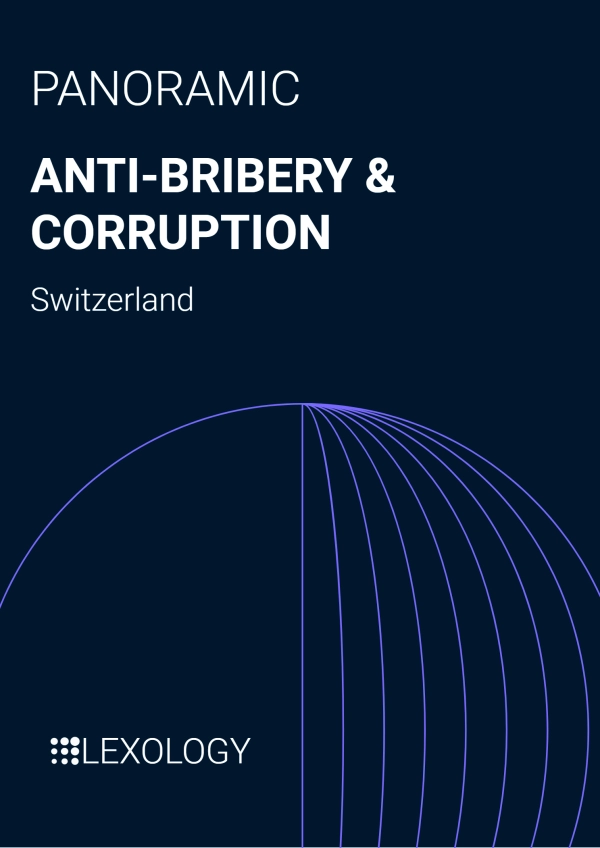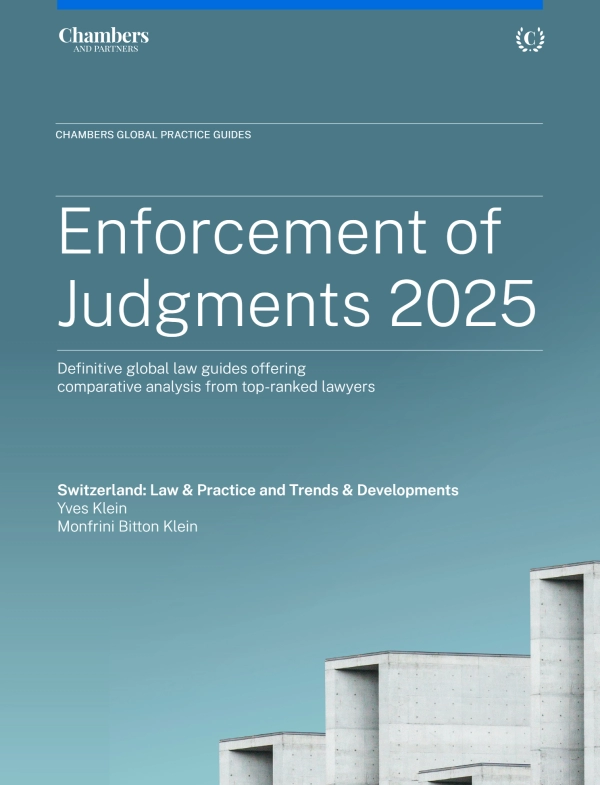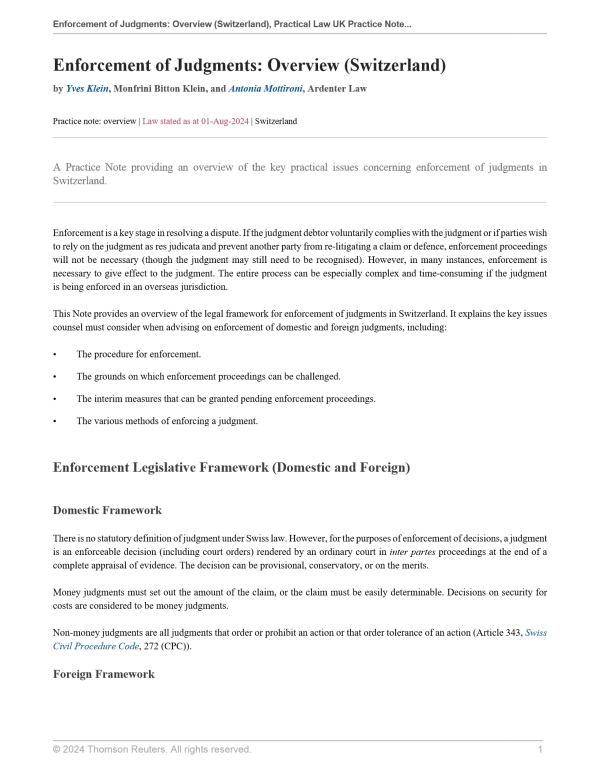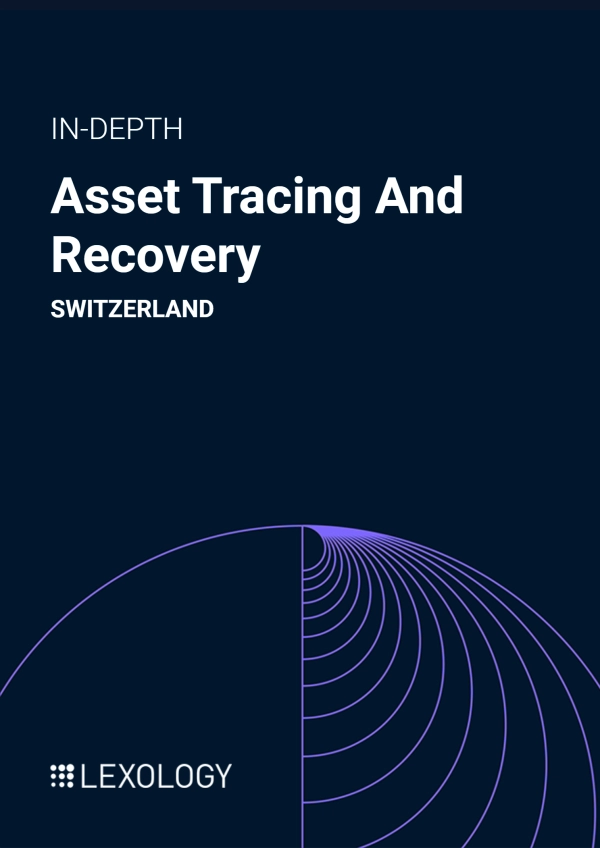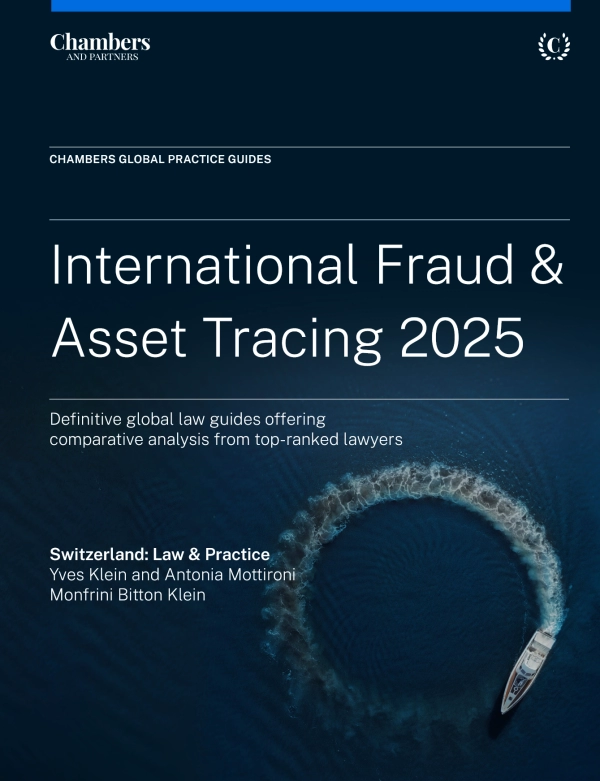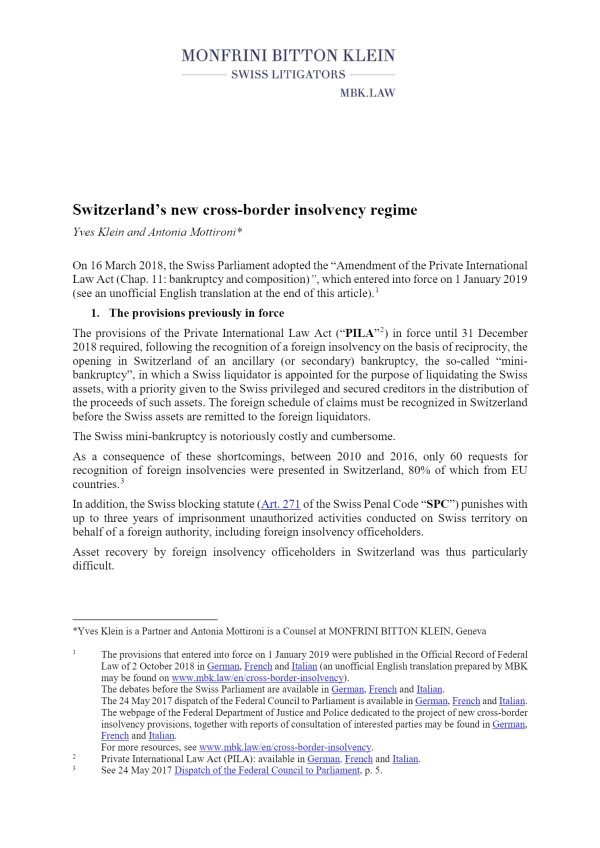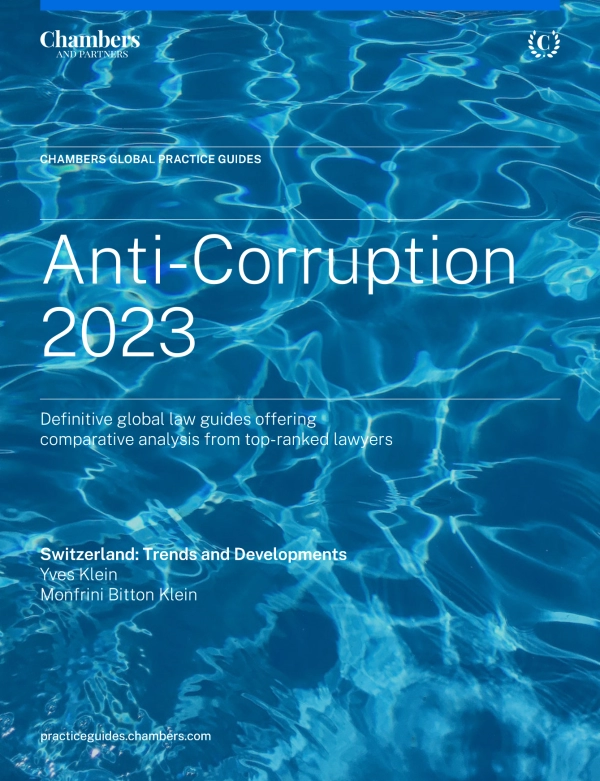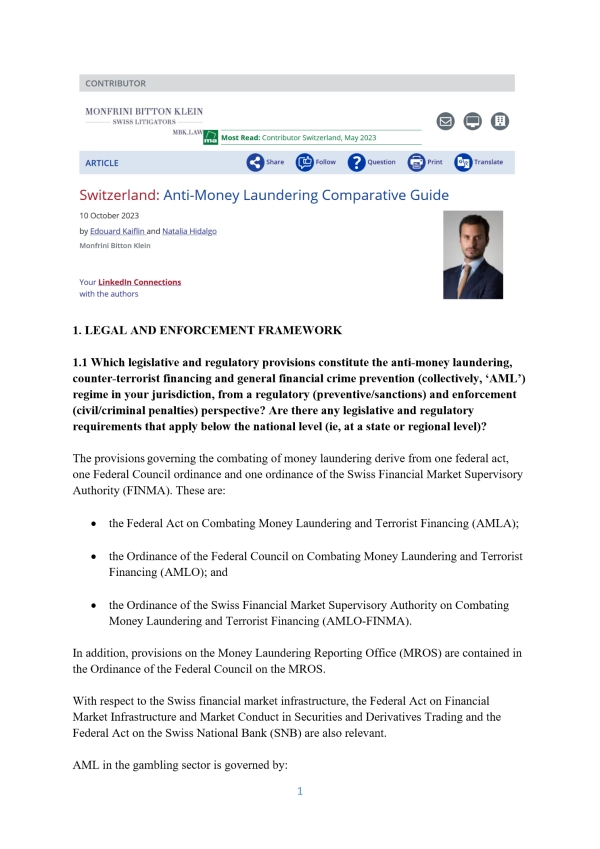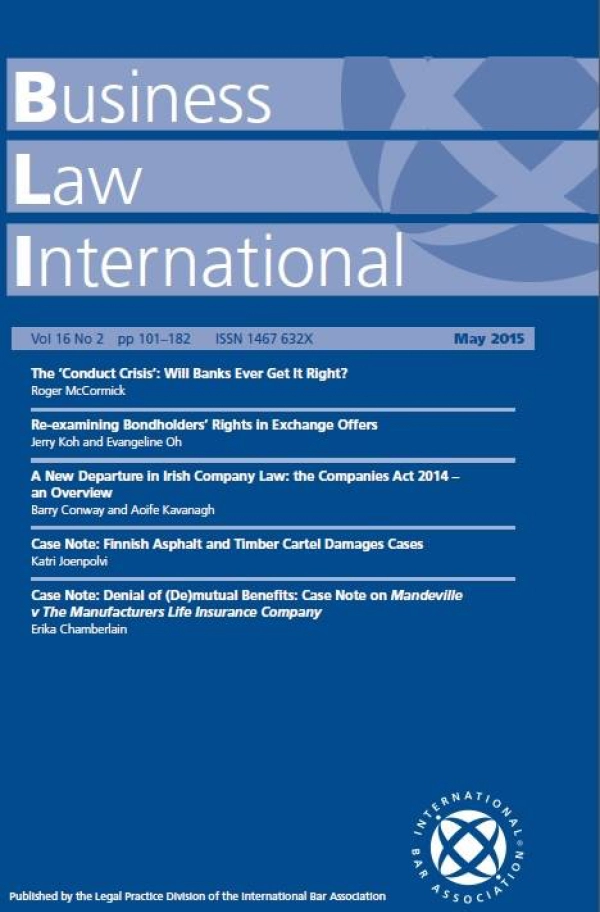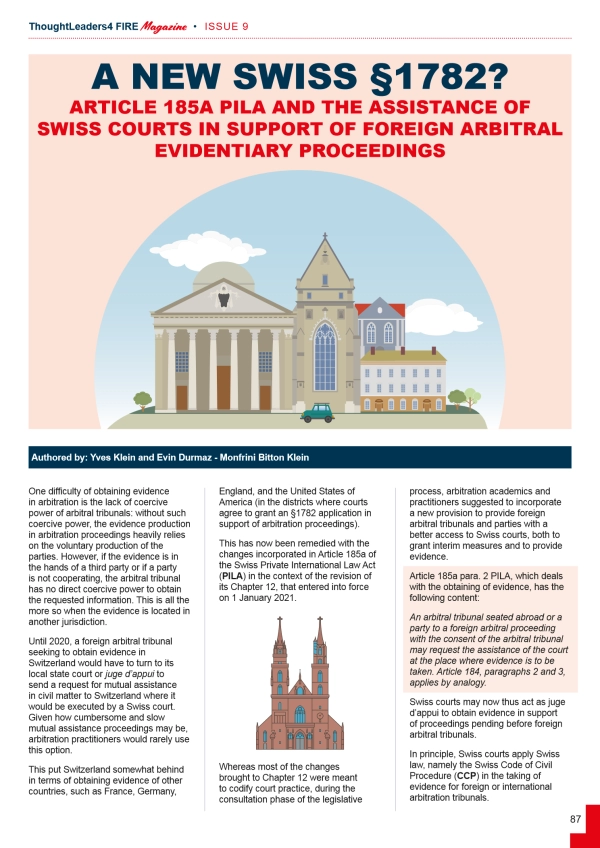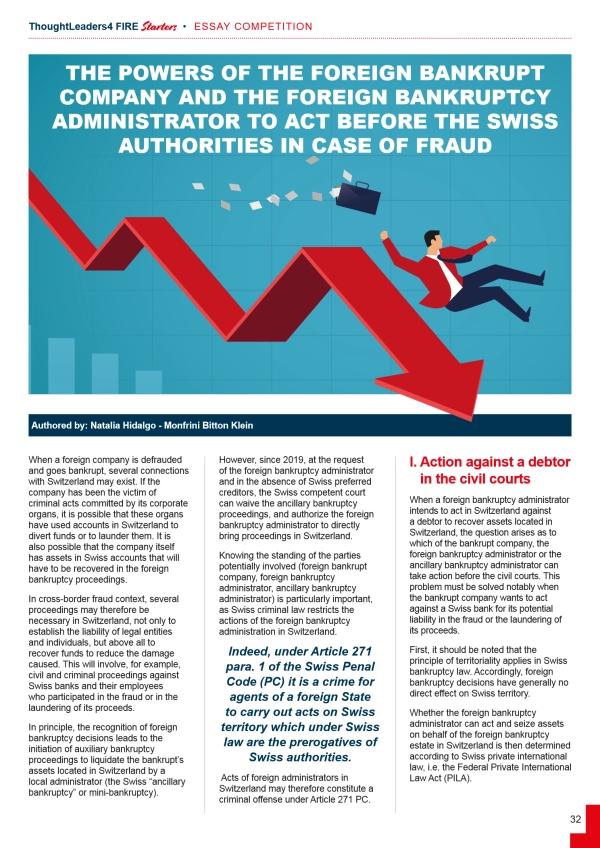How can we help ?
How can we help ?
You will find below resources that may assist in understanding the legal issues at stake in various situations. No step or action should of course be taken without taking proper legal advice.
Questions regardign enforcement should be in the mind of the parties to an agreement or their legal counsels from the outset: With whom do I contract? Are my potential debtors or their assets in a jurisdiction where my claims can be enforced? Do I need guarantees? Does my due diligence investigation process include potential enforcement of claims? Is the dispute resolution clause a good fit with where the judgment or award that will actually need to be enforced? Will evidentiary or interim measures be available to locate or freeze assets be available?
Once a dispute starts to arise, enforcement questions will be back: Are my debtors still solvent? Where are their assets? Are the assets in the process of being displaced? Are pre-litigation evidentiary or interim measures available to locate or freeze them?
When comes the time of litigation, new enforcement opportunities must not be lost: Do the substantive proceedings allow to obtain interim measures, evidence or intelligence towards the enforcement of claims against the debtors? Are pre-judgment or pre-award evidentiary or interim reliefs available to locate or freeze assets? Is the nature of the dispute purely contractual or are tortious acts such as civil fraud or criminal offenses also involved, so that further reliefs (Norwich Pharmacal, Bankers Trust, Worldwide Freezing orders) are available against my contracting parties or third parties? Are pre-insolvency reliefs available?
The recognition and enforcement of judgments or arbitral awards should thus be the last step of an enforcement-based approach to legal claims.
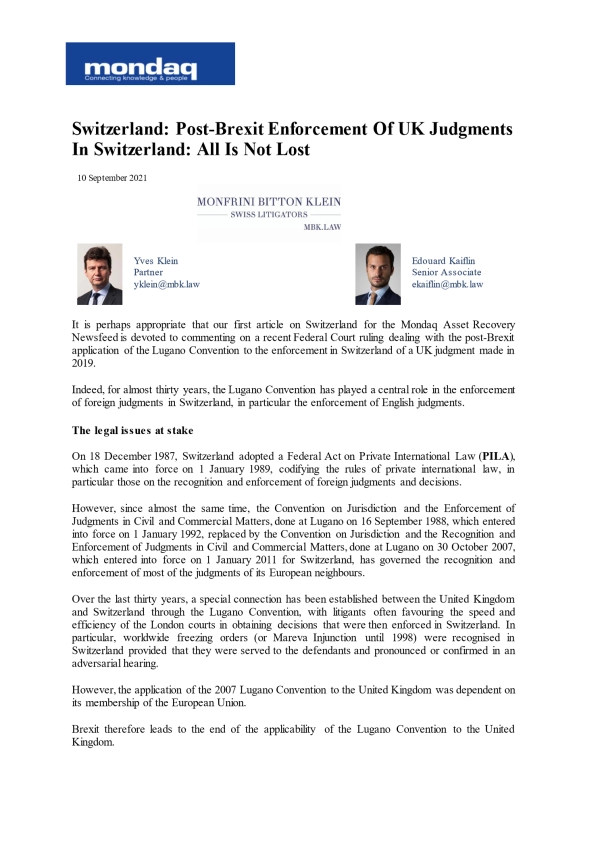
Switzerland: Post-Brexit Enforcement Of UK Judgments In Switzerland: All Is Not Lost
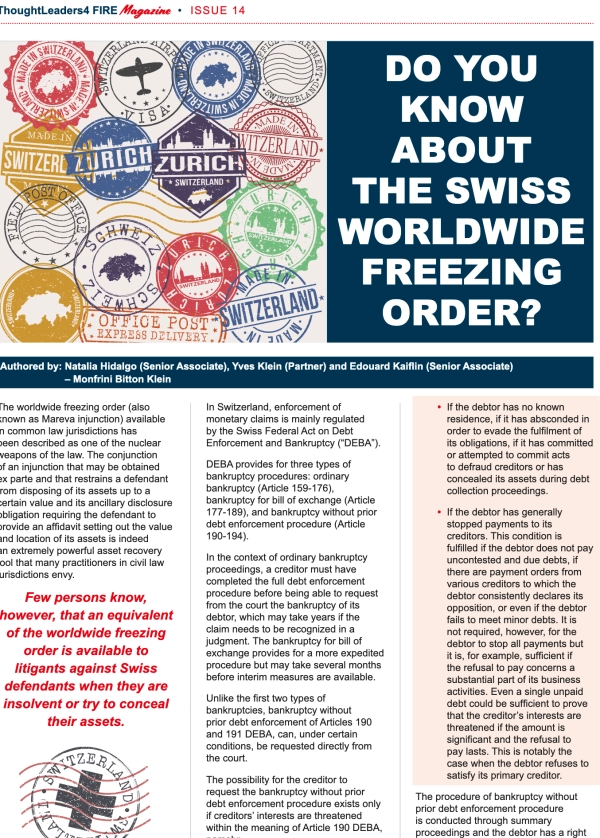
Do you know about the Swiss worldwide freezing order ?
Why is the recognition of a foreign bankruptcy necessary?
In accordance with the principle of territoriality, foreign bankruptcies have in principle no effect in Switzerland. Access to the debtor’s assets located in Switzerland is only possible once the foreign bankruptcy has been recognised.
Violations of the principle of territoriality may have criminal consequences. A foreign bankruptcy administrator acting as such in Switzerland – without the foreign bankruptcy having been recognised – may be subject to criminal prosecution under Article 271 of the Swiss Criminal Code, which punishes acts performed for a foreign state without authorisation.
What is the legislative framework for recognition of a foreign bankruptcy?
The recognition of foreign bankruptcies in Switzerland is governed by Articles 166 et seq. of the Federal Act on Private International Law of 18 December 1987 (PILA). The competent authorities are the cantonal courts at the location of the foreign bankruptcy’s assets.
If the debtor is comparable to a financial institution subject to regulation in Switzerland, (e.g., banks, insurance institutions, investments funds, etc,), the recognition is governed by the Federal Act on Banks and Saving Banks and the competent authority is the Financial Market Supervisory Authority (FINMA).
What are the main conditions to recognize a foreign bankruptcy?
Pursuant to Article 166 (1) PILA, the conditions to recognize a foreign bankruptcy are the followings:
- the request for recognition is filed by the bankruptcy administrator, the debtor or a creditor;
- the bankruptcy decision is enforceable in the state where it was issued;
- the decision was issued in the debtor’s state of domicile, or in the state of the centre of the debtor’s main interests (COMI), provided the debtor was not domiciled in Switzerland when the foreign proceedings were opened;
- there are no grounds for non-recognition (e.g., imcompatibility with Swiss public policy, violation of fundamental procedural rights, lis pendens, res judicata).
The conditions mentioned in Article 166 (1) PILA also apply to the recognition of foreign bankruptcies falling within FINMA’s competence.
You will find below an article describing the 2019 bankruptcy cross-border regime, with an English translation of the relevant provisions of PILA, as well as an article by Edouard Kaiflin and Natalia Hidalgo titled Lifting the veil on consolidated bankruptcies - update on the recognition of foreign bankruptcies in Switzerland for Thought Leaders 4 FIRE | Magazine
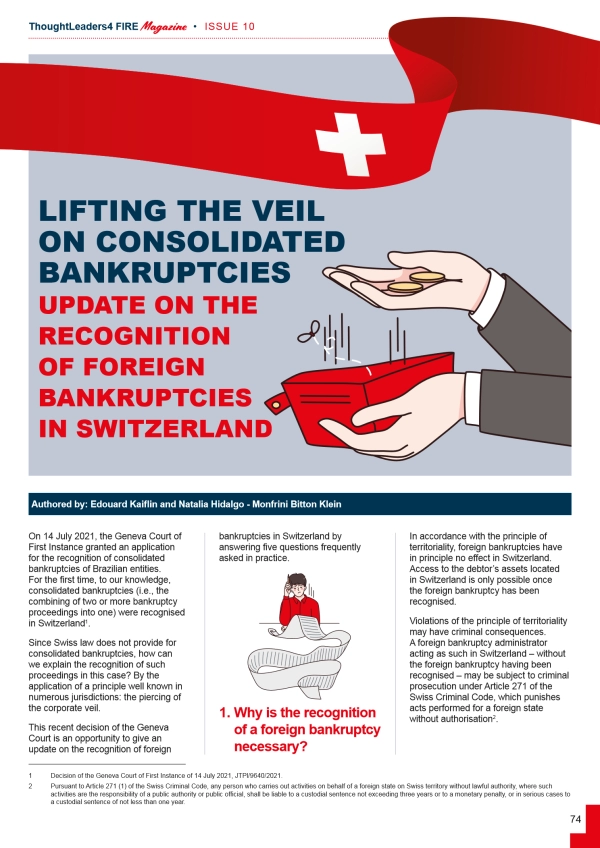
Lifting the veil on consolidated bankruptcies - update on the recognition of foreign bankruptcies in Switzerland
The issue of who is a foreign public official is a fundamental issue in anti-corruption law, as payments are often made to relatives of high ranking public officials. In Decision BB.2022.3 of 18 July 2022, the Lower Appeals Chamber of the Federal Criminal Court reasserted the conditions under which a relative of a high-ranking official may be considered as a de facto foreign public official under Article 322septies of the Swiss Penal Code, namely that the prosecution needs to establish that said relative (1) effectively influenced the foreign state’s decisions and (2) performed a public task in the context of that decision-making process, and found that these condition were not met. This contrasted decisions made in the same case in the USA, France, Sweden and the Netherlands, wich the Appeals Chambers found to have no evidenciary power in the Swiss proceedings.
Therefore, in Switzerland, when there is no evidence that a relative of a foreign public official is a de facto public official, the way to the conviction remains to establish that an agreement was concluded with the public official to grant an undue advantage to a third party, namely the relative, in exchange for the carrying out of an act in connection with his official activities which is contrary to his duties or dependent on his discretion (see in that regard the decision AARP/116/2023 of the Geneva Criminal Court of Appeal of 4 April 2024).
These issues are further discussed in an article authored by Yves Klein for Chambers Global Practice Guides - Anti-Corruption 2023.
The right to the confidentiality of communications between clients and their lawyers is a key element of our legal systems, protected since Roman law. There is probably no occasion when that protection comes under more challenges than in the context of criminal investigations. This is all the more so in the context of cross-border investigations, where different approaches may lead to conflicting results.
Switzerland is a global player in banking, financial and commodity trading services. Several hundreds of lawyers admitted to foreign bars are established in Switzerland.
It is therefore at the crossroad of many criminal investigations.
The issue of attorney-client privilege and professional secrecy is therefore a central one.
Under Swiss law, not all communications with foreign lawyers are protected by attorney-client privilege in the context of criminal investigations. Specifically, the privilege applies to communications with Swiss-qualified lawyers and lawyers from the European Union (EU) or European Free Trade Association (EFTA) countries. This includes UK lawyers, who, despite Brexit, are still treated as EU/EFTA lawyers under a bilateral agreement with Switzerland.
Communications with lawyers outside the EU/EFTA (such as US or other non-European lawyers) are not afforded the same protection. This means that in a Swiss criminal investigation, such communications may be subject to seizure by law enforcement authorities unless they are handled by or involve a Swiss or EU/EFTA lawyer. The Swiss Federal Court, in a ruling 1B_333/2020of 22 June 2021, confirmed this distinction, noting that while communications with non-EU/EFTA lawyers may be seized, these lawyers can still refuse to testify under Swiss law, creating an inconsistency in the legal framework.
To ensure your communications remain privileged under Swiss law, we strongly recommend involving a Swiss or EU/EFTA lawyer from the outset of any correspondence or legal matters. By doing so, you can extend the attorney-client privilege protections to your communications and reduce the risk of those communications being exposed during criminal investigations.
Those issues are further discussed in an article titled Switzerland: Privileged Or Not Privileged? Privilege Of Communications With Non-Swiss Lawyers In Criminal Investigations published in September 2021 for Mondaq by Yves Klein, Evin Durmaz and Natalia Hidalgo.
A comparative approach between the United Sates of America, the United Kingdom, France and Switzerland was discussed in a recorded webinar A Comparative Approach To Professional Secrecy And Attorney-Client Privilege In Criminal Proceedings organized in November 202232 by Mondaq, chaired by Yves Klein with Nicolas Surmacz, of Kobre & Kim, Azizur Rahman, of Rahman Ravelli, Stéphane de Navacelle, of Navacelle, and Evin Durmaz.
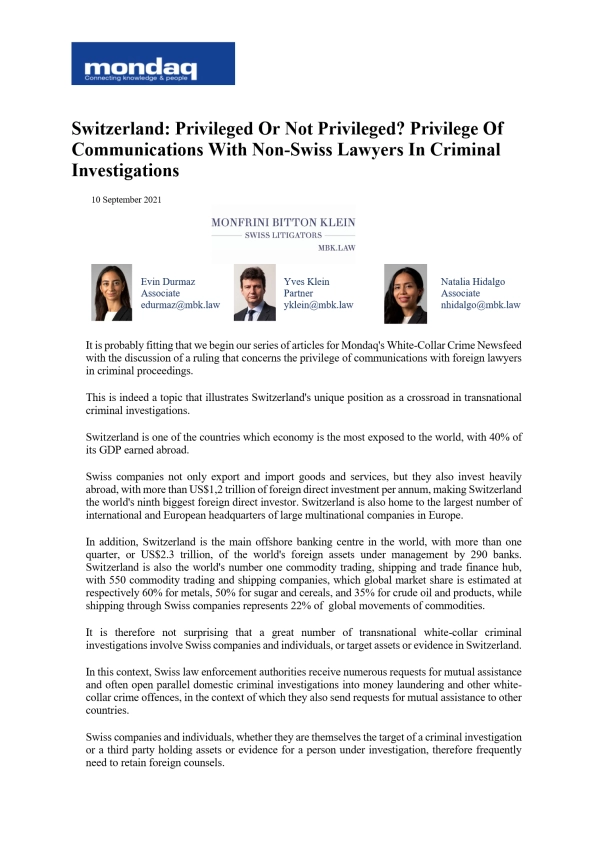
Switzerland: Privileged Or Not Privileged? Privilege Of Communications With Non-Swiss Lawyers In Criminal Investigations
The prevalence of fraudulent transfers has increased dramatically due notably to cyberfraud. The recovery of the proceeds of such frauds from perpetrators is very difficult, and the victims must consider the liability of the bank who executed the transfers.
Under most applicable laws, banks have a duty to refuse to comply with a payment instruction in circumstances where the bank is on notice that the instruction may be part of a fraud. For common law jurisdictions, this duty is known as Quincecare duty of care, and its breach by the bank may lead to its liability for damages.
Under Swiss law, this duty exists as well under Article 398 of the Swiss Code of Obligations. The liability of the bank in case of breach is governed by Article 97 of the Swiss Code of Obligations, which requires the meeting of four conditions: breach of contract, fault, causation and loss.
There exists, however, an alternative action, namely the performance action under Article 107 of the Swiss Code of Obligations, whereby the customer requests the bank to re-credit its account because the bank was not released from its obligation when it executed fraudulent transfers in breach of its good faith obligations. The conditions of the action
The nature of the performance action and its conditions, as developped by the Swiss Federal Court case law, are discussed in an article Better than damages: actions for performance against Swiss banks regarding fraudulent transfers authored by Natalia Hidalgo, Yves Klein and Evin Durmaz for Mondaq in 2021.
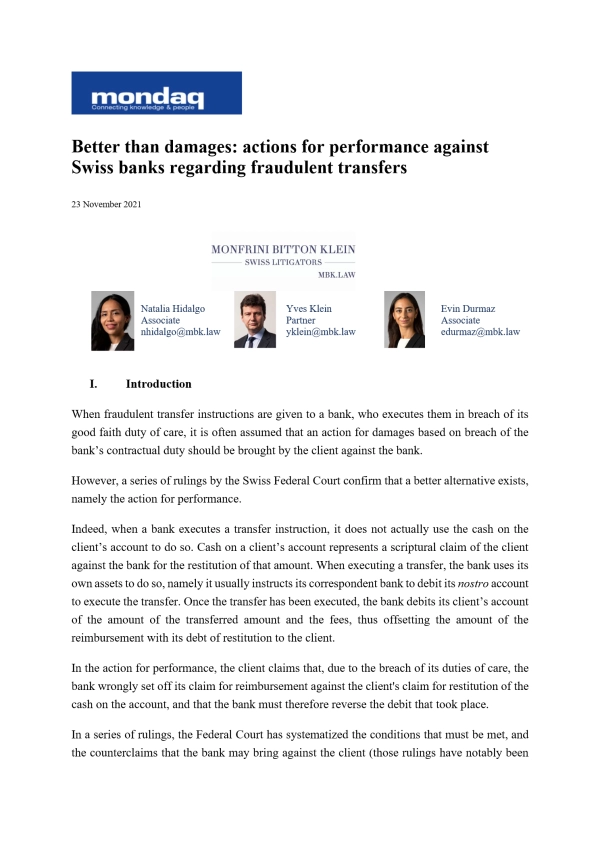
Better than damages: actions for performance against Swiss banks regarding fraudulent transfers
The Swiss Financial Market Supervisory Authority (FINMA) identifies two foundational pillars for combating money laundering in Switzerland:
- Article 305bis of the Swiss Penal Code (PC), which criminalizes money laundering.
- The Federal Act on Combating Money Laundering and Terrorist Financing in the Financial Sector (AMLA).
In asset recovery, these legal provisions are often central to disputes. Acts of money laundering or failure to comply with anti-money laundering regulations, particularly in the monitoring of high-risk transactions, may give rise to causes of action for victims of crimes involving banks or other financial intermediaries.
Contractual Liability
Clients may challenge the actions of financial intermediaries, such as banks, based on their contractual relationships. Recent Swiss Federal Supreme Court rulings have addressed a range of banking disputes, including unauthorized transactions, misappropriation of client funds, and fraudulent orders executed by third parties, such as hackers.
Although breaches of AML regulations do not independently form a basis for contractual liability, they may serve as evidence of a bank's fault or bad faith, which courts may consider in breach of contract or performance claims.
Tort Liability
A tort claim may also be pursued against financial intermediaries if an unlawful act can be established. Swiss case law has determined that violations of AML regulations under AMLA and Article 305ter PC do not in themselves constitute unlawful acts giving rise to tort liability, as these provisions are designed to protect the financial market's integrity rather than individual interests.
However, a breach of Article 305bis PC, which penalizes money laundering, may result in tort liability when it impedes asset recovery for victims of predicate offenses.
Additionally, banks may be held vicariously liable for the actions or omissions of their employees under Article 55 of the Swiss Code of Obligations.
You will find below thre articles in this regard, published by Yves Klein, Edouard Kaiflin and Natalia Hidalgo
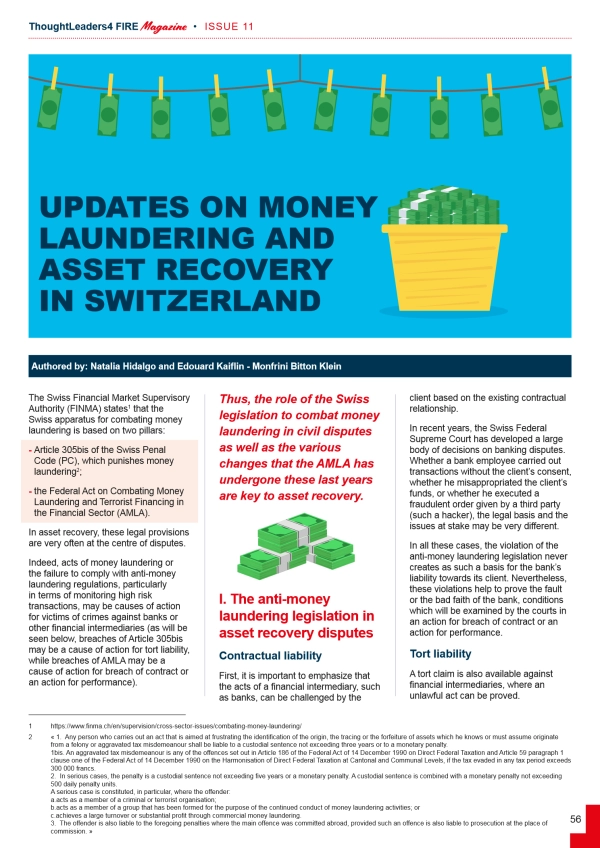
Updates on money laundering and asset recovery in Switzerland
One difficulty of obtaining evidence in arbitration proceedings is the lack of coercive power of arbitral tribunals, so that the evidentiary process relies heavily on the parties. However, if the evidence is in the hands of a third party or if a party is not cooperating, the arbitral tribunal has no direct coercive power to obtain the requested document or testimony. This is all the more so when the evidence is located in another jurisdiction.
In Switzerland, a provision that entered into force in 2021 facilitates the obtention of evidence in support of foreign arbitration proceedings.
Until then, foreign arbitral tribunals had to rely on lengthy mutual assistance procedures through their local courts to obtain evidence in Switzerland. Since January 2021, Article 185a of the Swiss Private International Law Act (PILA) allows foreign arbitral tribunals or parties, with the tribunal's consent, to directly request assistance from Swiss courts to gather evidence, significantly simplifying the process.
Swiss courts primarily apply Swiss law, particularly the Swiss Code of Civil Procedure (CCP), when assisting in such cases. This framework governs the collection of evidence, including testimony, documents, inspections, and expert opinions. Swiss courts may consider other procedural rules, such as those agreed upon in arbitration, but they generally adhere closely to the CCP. Importantly, Swiss courts do not support broad "discovery" as seen in common law jurisdictions; instead, they focus on specific, targeted documents.
When it comes to secrecy, Swiss law permits third parties to refuse cooperation under certain conditions, such as professional secrecy. However, banking secrecy, while protected, is not absolute. Courts can order its lifting if the interest in obtaining evidence outweighs the interest in confidentiality, particularly when the information sought pertains to economic data relevant to the arbitration. Decisions are made on a case-by-case basis, carefully balancing privacy with the need for transparency in legal proceedings.
In summary, Article 185a PILA provides an effective means for foreign arbitration parties to obtain evidence in Switzerland, significantly improving the process compared to previous methods, in particular from third parties, including Swiss banks.
These issues are further discussed in the article authored by Evin Durmaz and Yves Klein titled A new Swiss §1782? Article 185a PILA and the assistance of Swiss courts in support of foreign arbitral evidentiary proceedings, published in June 2022 for Thought Leaders 4 FIRE Magazine.
Bankruptcy liquidators in Switzerland can obtain evidence mainly through civil, criminal or bankruptcy avenues.
In Switzerland, there is no pre-trial discovery in the common law style. In civil cases, liquidators will usually need to precede the action on the merits with an action to render account based on Article 400 of the Swiss Code of Obligations (CO), which allows them to request documents from adverse parties. However, this process can be lengthy and may yield only partial results.
A more efficient route could be via bankruptcy law, specifically under Article 222 of the Federal Debt Enforcement and Bankruptcy Act (DEBA). Indeed, in bankruptcy proceeding, Swiss law provides that third parties against whom the bankrupt person has claims have the same obligation to provide information as the bankrupt.
When criminal misconduct is involved, an alternative often used is the filing of a criminal complaint, which under certain conditions grants liquidators the status of plaintiffs and the access the evidence gathered by the Public Prosecutor. This route gives liquidators a more direct and efficient way to gather crucial evidence for their case.
It should be emphasized that in cross-border insolvencies, particular care must be taken regarding the powers of each party involved. The foreign bankrupt company and its foreign bankruptcy liquidators have limited authority in Switzerland, and acting without proper authorization could violate Article 271 of the Swiss Penal Code (SPC), which prohibits foreign officials from carrying out activities reserved for Swiss authorities. This risk highlights the importance of understanding the distinct roles of the foreign bankrupt company, the foreign bankruptcy liquidators and the Swiss ancillary bankruptcy in civil, criminal, and bankruptcy proceedings. A well-coordinated strategy is crucial to navigating these complexities and ensuring effective asset recovery.
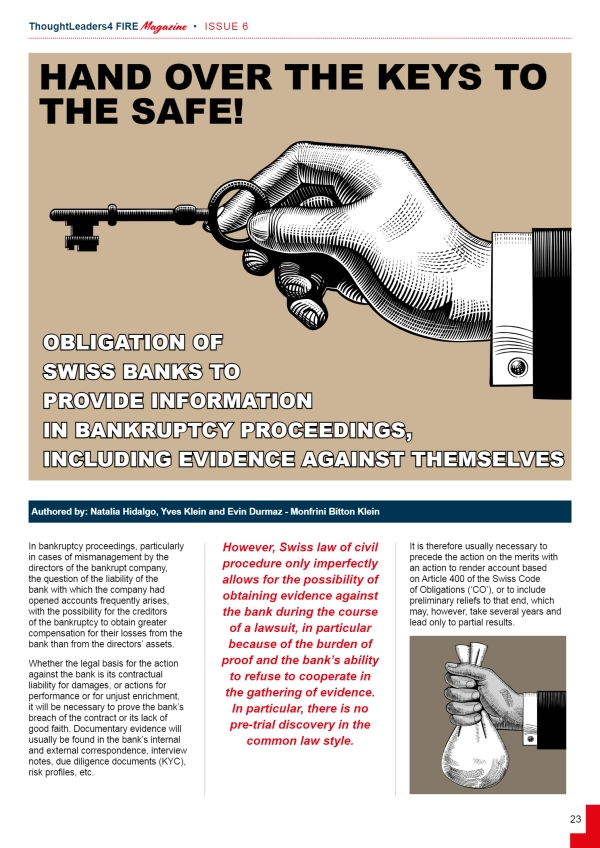
Hand over the keys to the safe! Obligation of Swiss banks to provide information in bankruptcy proceedings, including evidence against themselves
